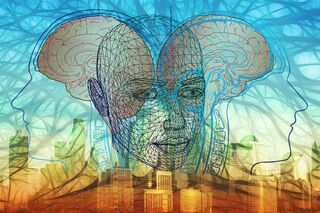Stress
Brain Resiliency During Stress
Strategies for peace of mind and brain resiliency during stress.
Posted September 21, 2020 Reviewed by Gary Drevitch
This is the first post of a three-part series on managing stress through the ongoing pandemic. The core three components of self-care include the mind, body, and spirit, so these posts will address each topic. Some of it you know, some you may not.

While I desperately wish I could make the world a better place that is free of disease, strife, fear, disasters, and all of the other things that exacerbate stress, trauma, illness, grief, conflict, loneliness, despair, and the unhealthy coping habits used to endure them, I can provide a few healthier strategies for improving your health and state of mind.
Health of Mind
Marcus Aurelius, a Roman emperor and Stoic philosopher who lived from 121 AD to 180 AD, offers compelling wisdom about the mind in one of his famous quotes: “You have power over your mind, not outside events—realize this and you will find strength.”
Aurelius’ words are powerful; however, he did not live in our age of technology and so he was spared from a constant barrage of interruptions demanding his time, energy, and money. He did not go to stores or log onto computer screens where vast amounts of money were spent on understanding his personal preferences and habits so that advertisers could present products and services in strategic (manipulative) ways designed to capitalize on human impulses in order to make a sale (or change an opinion).
Today’s connected world means living alongside ubiquitous and evolving advertisements. Humans are targeted like prey by smart predators armed with increasingly advanced technology that tracks likes, habits, and location and then steers human behavior with finely tuned “suggestions” through pop-up ads, product placements in movies and social media, paid ambassadors showing off a brand or writing a compelling review, among a host of other methods. The consequence of this 24/7 onslaught of disguised coercion can increase stress, impulsivity, defensiveness, and inattention—which causes harm to finances, relationships, and one’s overall health.
Now more than ever, it is essential to schedule regular time-outs and completely unplug. Get away from all screens. Computers, television, phones, tablets, and smartwatches. Disconnect—and reconnect with your breath, your heartbeat, and relax your mind from thoughts.
Some might do this through meditation. And there’s some compelling evidence about the benefits of meditation. Not only is it effectively used for treating trauma, anxiety, and depression, but it can improve decision-making and help to enhance higher brain functions in the frontal lobe (which is responsible for higher-order thinking skills and counteracting impulsivity) while desensitizing the amygdala (the less evolved part of the brain that feeds anxiety, fear [including FOMO-fear of missing out], despair, and hijacks our best intentions—and is often elicited in those impulse purchases influenced by advertisers and other influencers in various media).
Just 10 minutes of meditation a day can help strengthen and build your higher brain functioning while easing anxiety and fear. You don’t have to be a pro. Just sit in a comfortable place (ideally unplugged from technology) and begin slowing your breath with longer inhales and exhales. Relax the muscles in your body. As thoughts arise, simply acknowledge them without judgment and release them as you are able. You may be surprised by the sheer amount of thoughts that come into your mind. Just relax and allow them to be released. Bring attention back to your breath. Ease the muscles in your jaw, your neck, your body, and keep breathing in relaxation while breathing out any stress, tension, fear, and doubt.
Becoming mindful and giving yourself meditation breaks in your day and evening can help you get better control of your mind, as Aurelius suggests. Understanding that your own stress reactions and bombardment of stressors around you will lead to lower brain responses can help you gain back the control of your mind. Addiction, depression, anxiety, conflict, and fear thrive in the reactive nature of the limbic system of our brain. And like the lesson of meditation that says to simply recognize a thought without judgment and allow it to pass, try to be gentle with yourself if you are in an anxious emotional state—or find yourself in the throes of an addiction. Recognition of the thoughts, fears, and addiction is the first step to healing and recovery. Please seek professional help if you need and keep practicing your meditation.
Psychology Today offers a great service with the Therapist Locator. Simply type in your zip code to find a therapist near you. You can also search for treatment centers, support groups, psychiatrists, and teletherapy. In addition, many therapists have a list of local resources in your area as well, so consider calling one and ask for referrals and resources that meet your needs if you cannot locate any. Most of us want to help and would happily provide that to you.
To find a therapist, please visit the Psychology Today Therapy Directory.


